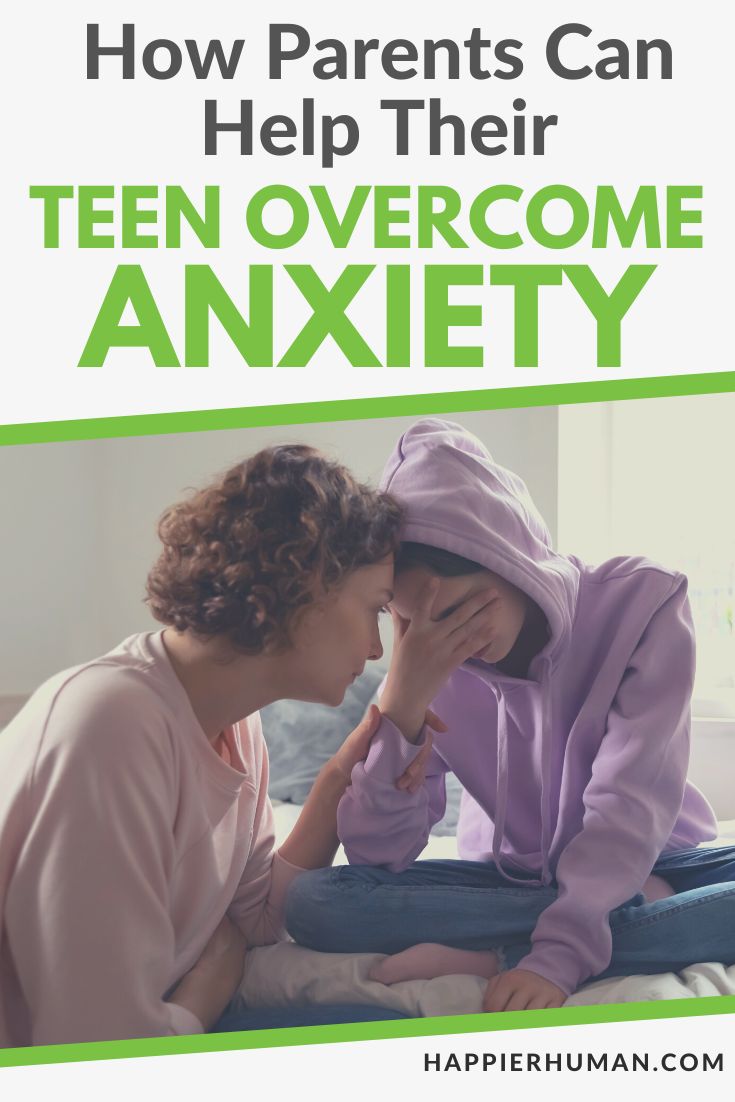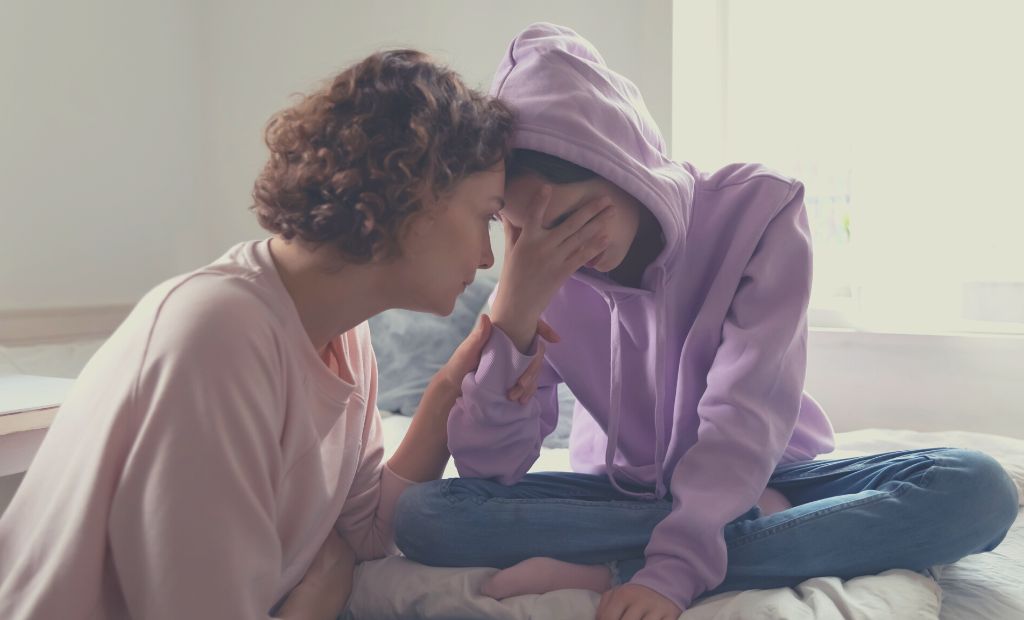There might be affiliate links on this page, which means we get a small commission of anything you buy. As an Amazon Associate we earn from qualifying purchases. Please do your own research before making any online purchase.
Healthy habits serve us well in life. As children, we are taught to brush our teeth at least twice a day. This daily habit helps to ensure positive dental health and reduce dental problems. We learn how to eat a variety of healthy foods each day, again to enhance mental and physical wellness and to help prevent medical conditions from developing.
Shouldn’t parents also aid their kids in developing positive mental health habits that both improve daily cognitive, psychological, and social functioning and decrease the likelihood of a mental health condition, such as anxiety, from escalating? Indeed, there are several wellness habits that can be developed in childhood and adolescence that can serve as protective factors for debilitating anxiety.
Establishing new habits takes time and patience. In order for young people to acquire new healthy habits it is necessary for parents to be committed to the process, which usually involves consistent oversight, reminders, modeling, and repetition before the teen has complied to the point where the action has become ingrained.
While understandable that a parent might lose interest in this effort, or simply become frustrated during the process, consistent follow through will enable the teen to have accessible tools for managing anxiety throughout their life.
About Teen Anxiety
Each of us can vividly remember at least one situation during our teen years that stoked intense feelings of anxiety. If we close our eyes and mentally travel back in time, a memory will emerge when we felt nauseous before having to deliver a speech or oral report, or breaking into a sweat before trying out for a sport or cheerleader. We clearly remember the intense anxiety symptoms caused by academic pressures and SAT testing.
The teen years have always been a tumultuous stage of our development as we transition from childhood to adulthood. Changing hormones, social pressures, scholastic pressures, discovering the opposite sex and the resulting drama that can accompany that—these are all normal stressors that occur during adolescence. The brain is still developing its executive functioning attributes, those that involve impulse control, decision-making, emotional regulation, memory and concentration, and each teen matures at their own pace.
However, while true that teen anxiety is not a new development, the prevalence of teens diagnosed with an anxiety disorder has been rising steadily for the past two decades. According to the National Institute of Mental Health, an estimated 32% of teens aged 13-18 had experienced some form of an anxiety disorder.
Further, the NIMH reports that female teens are more prone to anxiety than males (38% versus 26%), and that 8.3% of adolescents with an anxiety disorder suffer severe impairment in functioning. This source also contributes additional data regarding the prevalence of anxiety disorder among teens.
Recognizing the Signs of Anxiety in Your Teen
So, how does a parent differentiate between the anxiety symptoms that are normally associated with the teenage experience and an anxiety disorder?
Although most teens will struggle with stressful situations that result in worry, muscle tension, a racing heart, or sweaty palms, the anxiety disorder is much more intense and persistent. The symptoms of an anxiety disorder will be severe enough to cause disruption in normal functioning and relationships.
According to an article published in Psycom.net by Katie Hurley, LCSW, the symptoms of anxiety reach into all aspects of a teen’s life. Hurley breaks out each category and expounds on the many hidden signs of anxiety that may go undetected or considered to be normal teenage behavior.
Signs of teen anxiety disorder may include:
What Causes Anxiety in Teens?
It is still unknown as to why one teen is able to manage daily life stressors while another teen develops an anxiety disorder. Certain traits, such as personality traits or temperament, might be inborn in an individual’s genetic makeup. These traits may dictate how well the person navigates stressful situations.
Some may be easily triggered, which can flood the system with the stress hormones cortisol and adrenaline, resulting in the anxiety symptoms, where another may have a measured response to the very same situation.
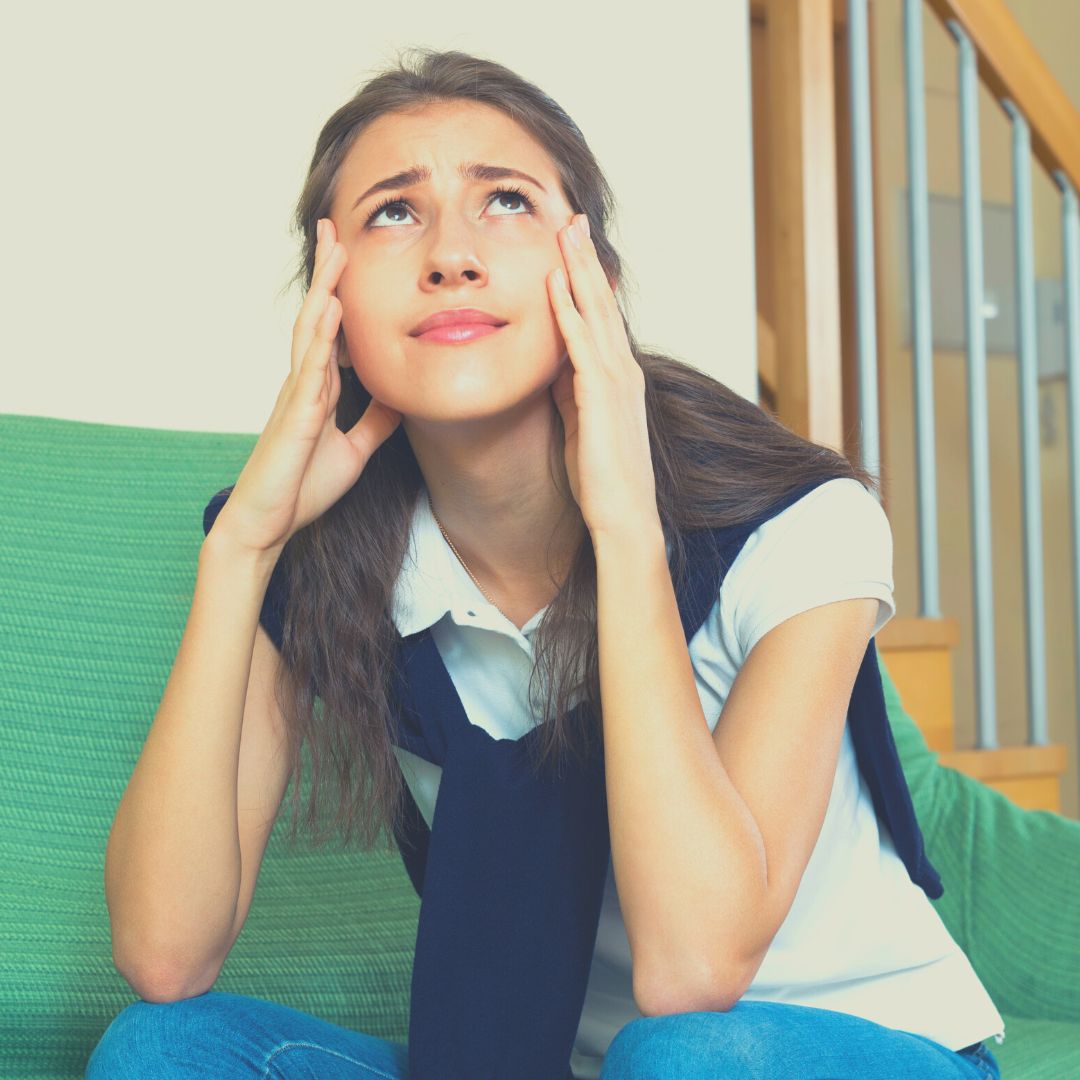
An interesting study published in Current Psychiatry Reports [Wehry, Anna, et.al.] entitled, “Assessment and Treatment of Anxiety Disorders in Children and Adolescents” goes into depth discussing the possible neurobiological origins of anxiety, particularly related to the possible dysfunction within the prefrontal-amygdala circuitry.
Factors known as potential causes of anxiety include:
Interestingly, psychologist Suniya Luthar, Ph.D. of Arizona State University, notes that, although there might be an assumption that anxiety rates are highest among the disadvantaged youths, in reality it is highest among privileged teens.
The transcript of Dr. Luthar’s interview with Audrey Hamilton on the APA’s “Speaking of Psychology podcast reveals a great deal of interesting insights as to the many factors that are cultivating such anxiety in our young people.
Most Common Anxiety Disorders Among Teens
The anxiety spectrum of disorders presents a range of different ways that anxiety manifests. At the heart of each type of anxiety disorder is a sense of dread or fear, excessive and irrational worry, and a feeling that the individual does not have control. Certain types of anxiety disorders are more prevalent in teens, including:
Specific Phobia
Specific phobia involves an intense fear of an object or situation, leading to avoidance actions and isolation. Examples of teen phobias might include fear of spiders, enclosed spaces like elevators, fear of certain animals, fear of public speaking, fear of heights, or fear of germs.
Social Anxiety
Also referred to as social phobia, social anxiety pertains to a teen’s intense fear of being judged harshly or publicly humiliated in front of peers. This can have serious consequences in school, when the teen refuses to participate in class for fear of being judged, negatively impacting grades. Fear of judgment can restrict participation in sports or other social activities as well.
Generalized Anxiety Disorder
With GAD the teen experiences excessive worry and fear in daily life and is generally unable to relax. This can result in somatic symptoms, such as recurrent headaches, stomach distress, vomiting, and fatigue as well as insomnia.
Panic Disorder
A teen may experience recurrent panic attacks that come on unexpectedly. During a panic attack the teen will feel out of control and may suffer from symptoms of chest pain, shortness of breath, a racing heart, sweating, shaking, headache, nausea, and dizziness.
How Parents Can Help Their Anxious Teen
When a teen begins displaying signs of anxiety, it is natural for parents to assume it is just a temporary response to a temporary issue going on in their lives. After all, the emotional ups and downs associated with the teen years are legend. Seeing your teen stressing out and irritable may at first appear to be just typical of the age.
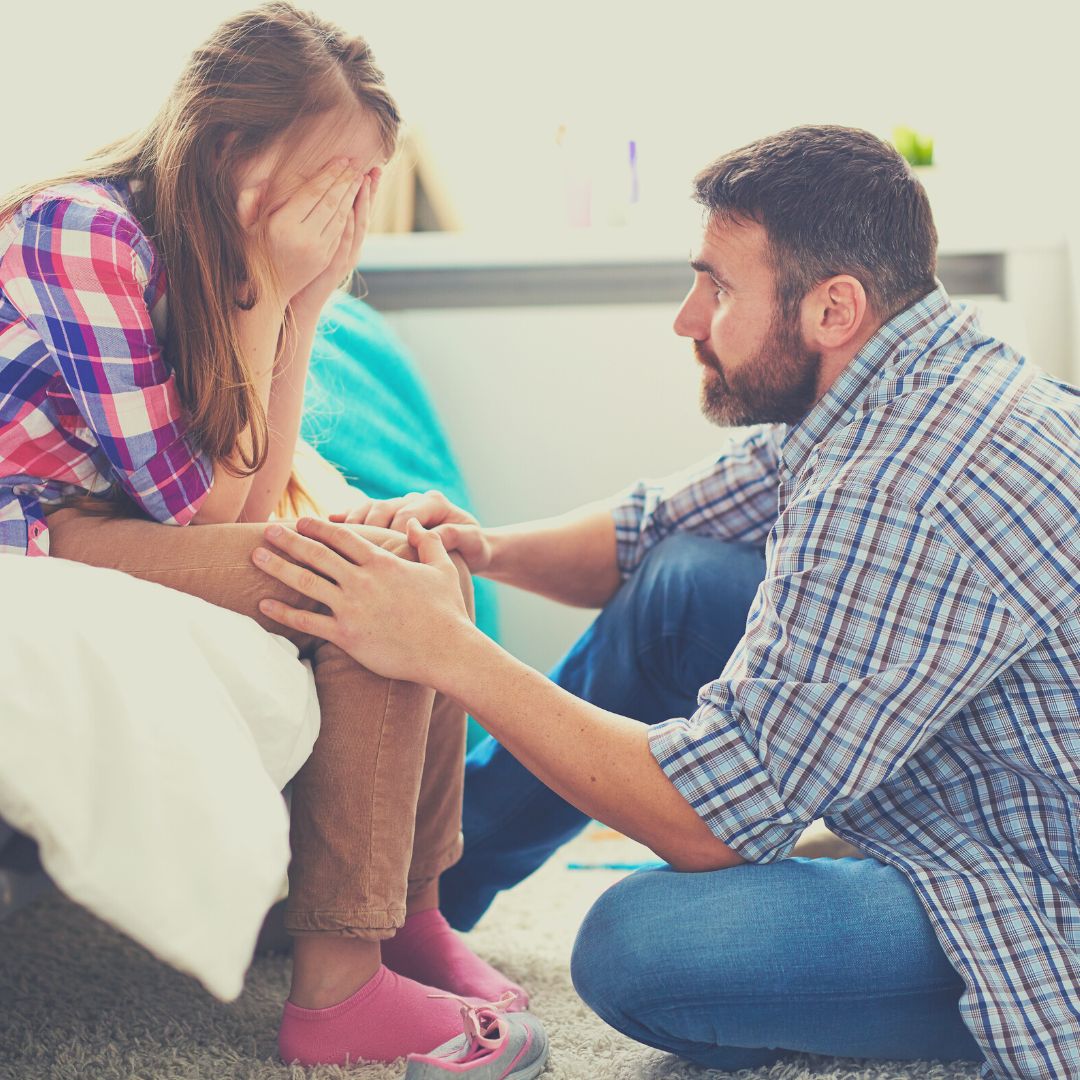
However, when the teen exhibits consistent signs of emotional distress it is wise to intervene as early on as possible. Parents may not want to consider that their teen might have a mental health problem, but to ignore the situation is usually going to result in even more distress and that leads to problems in school, troubled relationships, and health issues.
Initially, it is best to have the teen evaluated by a physician. The doctor can assess the general health status of the adolescent to determine if a health condition might be a factor in the resulting symptoms of anxiety. If no medical issue is detected, the doctor will likely refer the teen to a mental health provider for further evaluation.
Outpatient Treatment for Teen Anxiety
An outpatient treatment provider, such as a private practice psychiatrist or psychotherapist, can provide help for teens who struggle with anxiety. After a careful review of the symptoms of a mental health professional can prescribe therapy to help the teenager work through contributing or underlying issues pertaining to the anxiety.
Psychodynamic therapy: Some teens may have a history of trauma or abuse or an attachment disorder that may warrant exploration through psychodynamic therapy. This type of therapy examines childhood events that may be surfacing in the teen years through an anxiety disorder.
Prolonged exposure therapy: Exposure type therapies are helpful for teens who struggle with trauma disorder or PTSD, as this type of therapy can reduce the impact of the traumatic memories.
Cognitive behavior therapy: Many teens benefit from CBT, a short-term therapy that focuses on changing disordered thought and behavior patterns. The teen is encouraged to identify irrational thoughts and fears and change those thoughts to more realistic and self-affirming thoughts. A study published in Clinical Child and Family Psychology Review [Sutter, et.al.], “Cognitive Behavior Therapy for Anxious Adolescents,” further illustrates the significance of using CBT for treating teens that struggle with an anxiety disorder.
Some teens may benefit from medication to help them manage the symptoms and function better. However, medications may induce negative side effects so the use of these drugs should be short-term if possible, allowing the teen to stabilize.
Form New Habits that Can Help Manage Anxiety
Today’s teenagers face intense stress in daily life. The push to perform academically can become overwhelming, especially if there is also pressure to be actively involved in various extracurricular sports or clubs as well. In today’s high schools there is a push to direct all kids into college, which can result in stress and anxiety for all students, but particularly for teens who are not necessarily a fit for college.
Other stressors contribute to a teen’s overall sense of feeling out of control and overwhelmed. Social stressors that send the message to either conform or be labeled an outcast are not new, but in today’s social climate are driven through social media. Using technology to bully or ostracize teens can have very serious consequences on mental health.
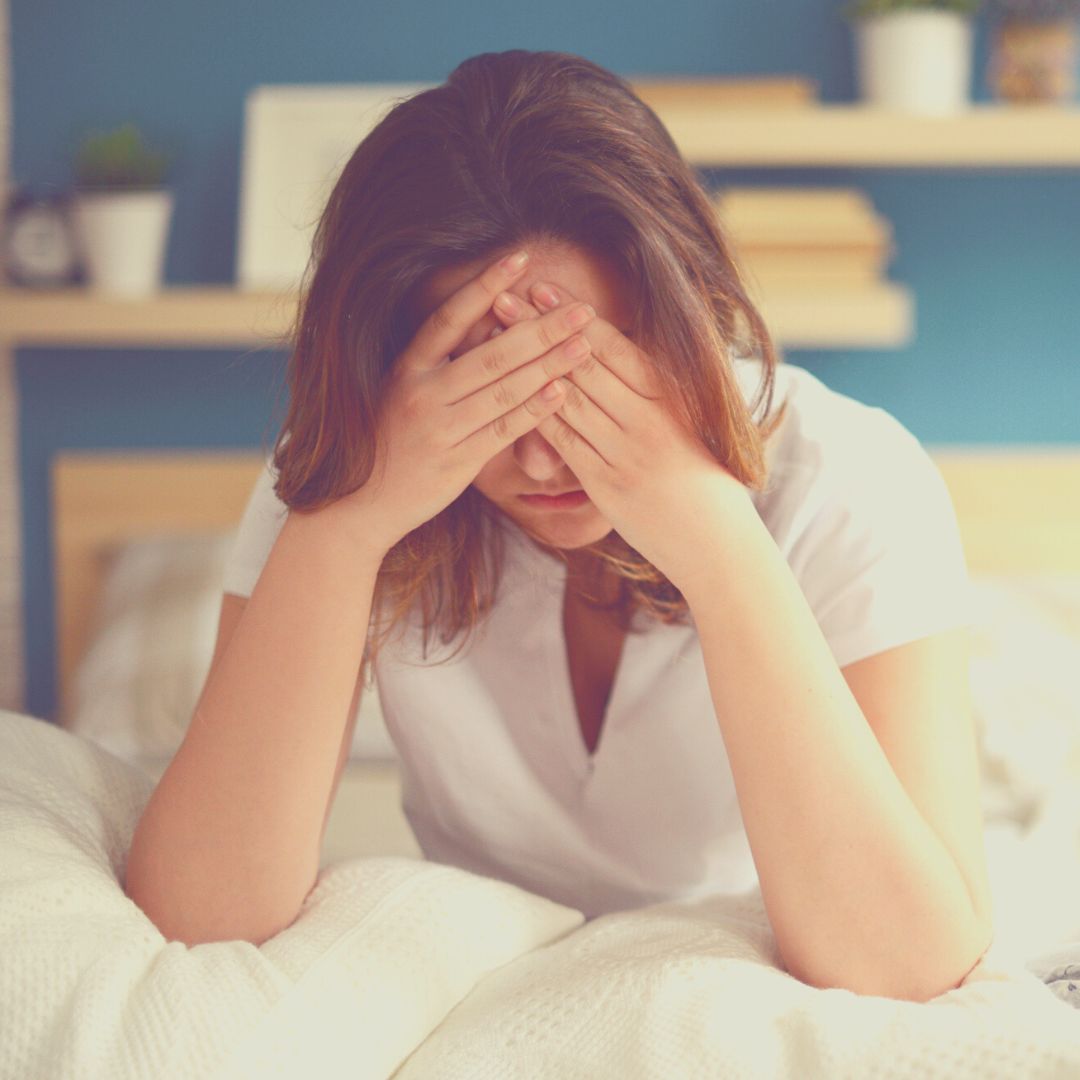
Parents can help their teens by introducing some anxiety-regulating activities early on in adolescence. These types of activities may suffice in helping teens manage stress and worry without taking the path toward self-medicating symptoms with drugs or alcohol. Some habits that can help mitigate anxiety include:
Relaxation techniques. There are several excellent methods for reducing stress. Teens will benefit by accessing these as soon as anxiety symptoms emerge. They include:
Exercise. The regular practice of cardio or aerobic fitness activities can help the teen’s anxiety levels. Encourage the teen to incorporate a regular exercise routine until it becomes habit.
Activities such as running, swimming, dancing, cycling, and power walking can help ease anxiety. Jasper Smits, Ph.D. and Michael Otto, Ph.D. have espoused the therapeutic effects of exercise on anxiety in their book, “Exercise for Mood and Anxiety: Proven Strategies for Overcoming Depression and Enhancing Well-being.“
Limit social media. Parents are becoming increasingly aware of the negative effects of social media on their teen’s mental health and are smart to limit it. Social media platforms can become addicting to the teen, limiting their healthy live interactions with people.
Becoming obsessed about how others are portraying themselves and then comparing them to their own life can leave them feeling anxious and depressed.
Diet and nutrition. Diet has a significant impact on mood and cognitive functioning. Teens tend to gravitate toward junk food, fast foods, and sugary beverages, which can have a negative effect on emotional wellness. Parents should establish healthy dietary habits for their kids as early as possible.
Better organizational skills. Teaching coping skills that hopefully become new habits is helpful to teens who struggle with anxiety. Better organizational skills can alleviate much anxiety and give the teen a better sense of control over their time and obligations.
Teach them to make a daily “to do” list, how to prioritize school assignments, and how to develop effective time management skills.
Improve sleep quality. Teens tend to require more hours of sleep, something that is often ignored when video games and smartphones distract them into the wee hours. Helping a teen establish a healthy sleep routine is key to optimal mental health.
Parents can help their teens achieve better sleep quality by restricting such distractions and enforcing a regular sleep schedule.
Explore interests or passions. When parents encourage their adolescents to cultivate their passions or interests they are helping that teen to achieve a higher sense of self-confidence.
When a teen feels they are competent in a hobby (such as hobbies for people with anxiety) or sport they feel more in control, which elevates self-esteem and improves emotional balance.
Keep a journal. Give your teen a journal for his or her birthday and encourage them to record their thoughts, feelings, dreams, and challenges on paper. They can also use this journal to write down SMART goals to help them deal better with their anxiety. This is a coping mechanism that helps alleviate stress by offloading heavy emotions and processing them through the written word. Instead of ruminating endlessly over something that happened at school they can write it down and be done with it.
Residential Treatment for Teen Anxiety
If after securing outpatient treatment and helping the teen to establish these healthy habits has not been effective in reducing anxiety levels, it may be that the teen will benefit from a residential treatment program. An extended stay in a residential setting can allow the teen to receive a more intensive and comprehensive treatment protocol.
Teen residential treatment programs can customize the treatment approach, using particular evidence-based therapies, holistic and experiential activities, and medication management to help the teen overcome an anxiety disorder in a safe, supportive environment. For teens with escalating anxiety and increasing functional impairment, a residential treatment program designed for teens is an appropriate standard of care.
Finally, if you want a simple way to reduce your stress and anxiety, then try writing these 35 mindfulness journaling prompts to live more in the present moment.
About the Author:
Dr. Arastou Aminzadeh is a triple board certified physician in psychiatry, child and adolescent psychiatry, and addiction medicine, and is the co-founder of BNI Treatment Centers in Agoura Hills, California. Dr. Aminzadeh is a fellow of the American Society of Addiction Medicine and also a fellow of the American Psychiatric Association. A well respected leader in the field, he also holds an adjunct faculty position at the University of Southern California, Keck School of Medicine, where he completed his residency and fellowship.
